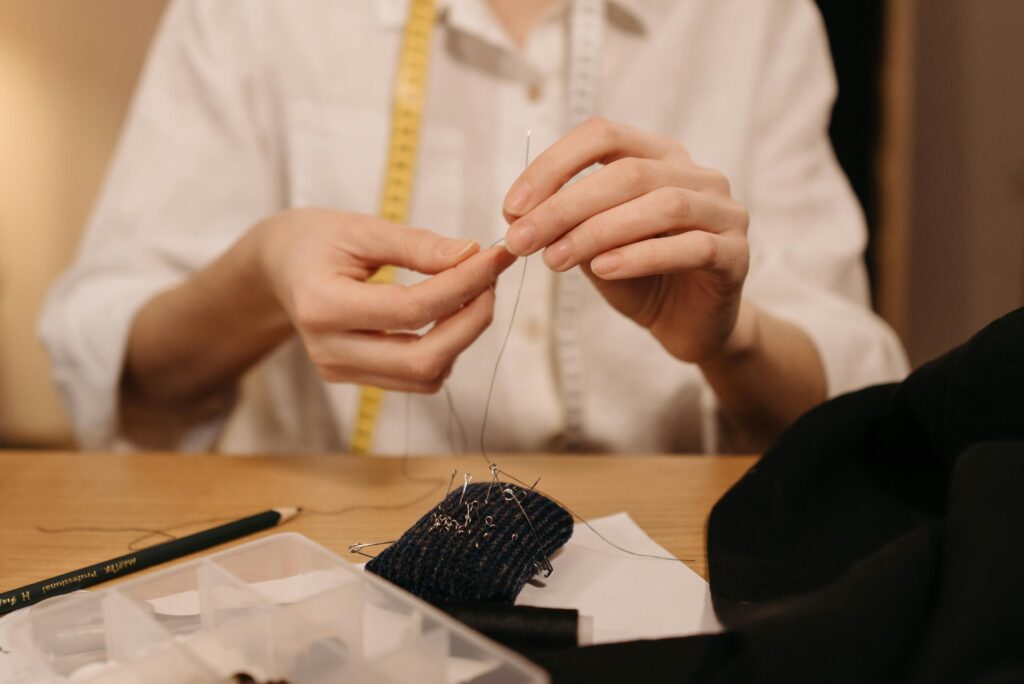Want to know your ethical score? Login now to find out!
Curious about which brands are ethical or not? View our brand ratings here!
Want to connect with like-minded individuals? Join the movement!
Gain discounts while shopping ethically, sign up for free here!
Fast Fashion vs. Slow Fashion: Understanding the Ethical Divide
Explore the key differences between fast fashion and slow fashion and why choosing ethically made clothing matters.
The Divide Between Fast and Slow Fashion
The fashion industry stands at a crossroads, split between two dominant paths: fast fashion and slow fashion, which prioritises sustainability and ethical practices. While fast fashion offers convenience and affordability, the hidden costs to the environment and workers are substantial. The rapid turnover of trends fuels a cycle of disposability, leaving behind a trail of waste and pollution. But at what cost?
In this article, we’ll explore the ethical divide between fast and slow fashion, uncovering why switching to slower, more mindful consumption matters. By the end, you’ll understand how your clothing choices can align with both your personal style and ethical values.


The True Cost of Fast Fashion
Fast fashion might be cheap and convenient, but it often involves poor working conditions, low wages, and significant environmental harm. The rapid production and turnover of clothing create a culture of disposability, where items are quickly discarded after a few wears. Fast fashion brands also contribute to waste with overproduction and cheap materials that aren’t built to last.
Understanding the impact of fast fashion and how it contributes to pollution and waste is crucial when making sustainable fashion choices.
The Rise of Slow Fashion
In contrast, slow fashion promotes mindfulness in production and consumption. Ethical clothing brands produce fewer items, focusing on quality, durability, and eco-friendly materials like organic cotton or recycled fabrics. These brands often invest in sustainable materials, minimising environmental impact and supporting fair labor practices.
A growing number of consumers are choosing slow fashion not just for style, but for its long-term value. As one customer shared, “I’d rather invest in a few quality pieces than a closet full of clothes that fall apart after a few washes.” This approach encourages consumers to purchase fewer, higher-quality items that last longer, aligning with sustainable development goals.


Choosing Ethical Over Easy
Being an ethical consumer involves making informed decisions about where and how your clothes are made. While fast fashion offers short-term convenience, the long-term environmental and social costs are substantial. By supporting slow fashion brands, you not only reduce your ecological footprint but also contribute to a more sustainable and equitable fashion industry.
Start by looking for certifications like Fair Trade or Global Organic Textile Standard (GOTS), or brands that are transparent about their production practices. Platforms like Ethical or Not can help you easily discover ethical fashion labels that align with the United Nations Sustainable Development Goals (UN SDGs).
The Lasting Impact of Ethical Fashion
Supporting slow fashion isn’t just about the clothes you buy—it’s about advocating for a world where people and the planet are treated with respect. Fast fashion contributes to deforestation, water pollution, and excessive waste, whereas slow fashion aims to protect natural resources by using less water, fewer chemicals, and creating less waste.
The ripple effect of choosing slow fashion extends beyond your wardrobe. By supporting sustainable brands that emphasise social sustainability, durability, and even clothing repair, you contribute to a circular economy where fashion becomes a force for good.


Making a Difference: Your Role as a Consumer
The fashion industry is at a crossroads, and as consumers, we hold the power to drive change. By choosing sustainable fashion brands, we support ethical labour practices, reduce environmental harm, and promote a more sustainable industry overall. Investing in fewer, high-quality pieces isn’t just a statement about style, but about values.
Ready to make a difference? Explore Ethical or Not’s brand ratings today to discover the benefits of a more mindful wardrobe. By supporting brands that emphasize sustainability, you’re joining a movement toward a more ethical, sustainable fashion industry.

